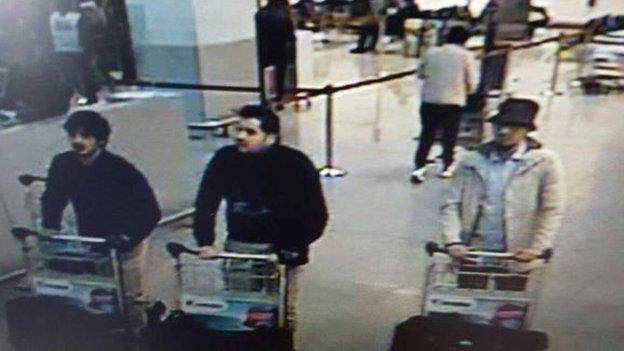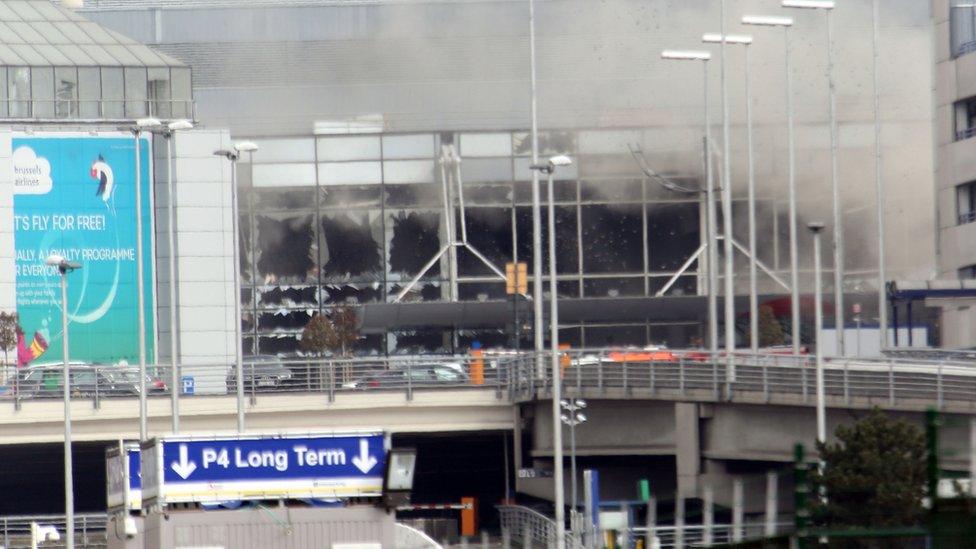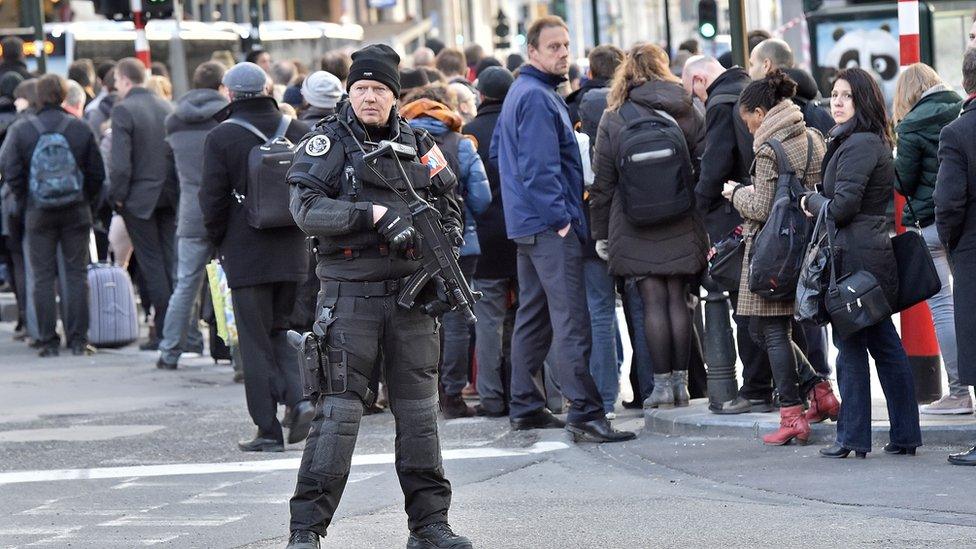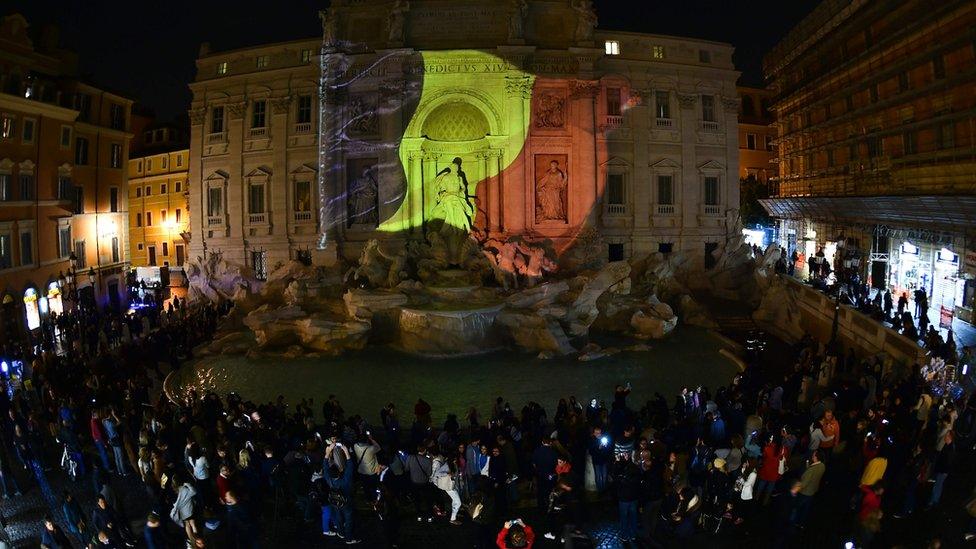Brussels attacks: Police hunt Zaventem bombings suspect
- Published
Katya Adler reports: "Brussels has turned in to a city of sirens and a centre of fear"
Belgian police have issued a wanted notice for a suspect after bomb attacks at Brussels' main airport and a metro station left more than 30 people dead.
The man was seen walking with two other suspects shortly before twin explosions tore through Zaventem airport.
Both men died in the attacks after detonating suicide devices, a Belgian prosecutor said.
Anti-terror raids have taken place across Belgium. So-called Islamic State (IS) said it was behind the attacks.
An online statement from the group said the locations were "carefully selected" and warned of worse to come for "Crusader states allied against the Islamic State".
The US State Department has urged US citizens of "potential risks" of travelling to Europe.
"Terrorist groups continue to plan near-term attacks throughout Europe, targeting sporting events, tourist sites, restaurants and transportation," a statement said.
Belgian prosecutor Frederic Van Leeuw said police were seeking a man wearing a hat and light-coloured jacket.
He said searches were taking place "in several parts of the country", adding that an explosive device containing nails, chemical products and an IS flag were found in an apartment in the Schaerbeek area of Brussels.
The raid in Schaerbeek reportedly followed a tip-off from a taxi driver who had driven the three suspected bombers to the airport.

The two men to the left are believed to have blown themselves up
The explosions happened in quick succession shortly after 08:00 local time (07:00 GMT), with some victims reportedly hit by the second blast as they tried to escape the first.
Another bomb was later found and destroyed in a controlled detonation at the scene.
The Zaventem mayor, Francis Vermeiren, told the AFP agency the suicide attackers used bombs hidden in their suitcases.

More about the attacks

About an hour after the airport blasts, another explosion struck the Maelbeek metro station near EU headquarters.
It has not been confirmed what caused the explosion but IS said it too was a suicide bombing.
Belgian officials put the death toll from both attacks at more than 30, with at least 11 killed at the airport and about 20 at the metro station.
About 250 people have been injured, many of them severely.
The blasts came days after the arrest of Salah Abdeslam, a key suspect in last year's Paris attacks which were also claimed by IS.
"This is a day of tragedy, a black day," Belgian Prime Minister Charles Michel said. "I would like to call on everyone to show calmness and solidarity."
Belgium has raised its terrorism alert to its highest level. Three days of national mourning have been declared.
Some local transport has re-opened following a shutdown, but flights from the airport have been cancelled and the airport is unlikely to open for several days. Eurostar services in and out of Brussels have been suspended.
World leaders have sent condolences and messages of solidarity.

The blasts left scenes of carnage at a major airport and metro station

Security was tightened and local and international transport links shut down

By nightfall some of Europe's best known tourist sites, including Rome's Trevi fountain were lit in the colours of the Belgian flag
US President Barack Obama called the blasts "outrageous attacks against innocent people" while the 28 EU leaders - in a joint statement - said the bombings were an "attack on our open, democratic society".
The UN Syria envoy, Staffan de Mistura, said the attacks showed the urgent need to "extinguish the fire of war" in Syria so the focus could turn to IS.
International landmarks, such as the Trevi fountain in Rome and the Eiffel Tower, have been lit up in the colours of the Belgian flag in tribute to the victims.